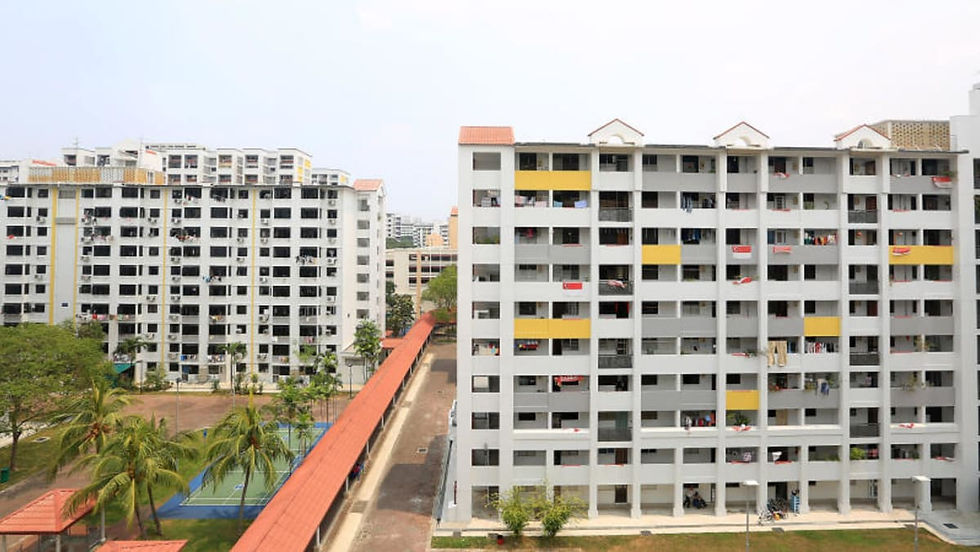
Francis Yuen, secretary-general of the Progress Singapore Party (PSP), announced on Wednesday that the PSP will be submitting a parliamentary motion to discuss the public housing market in Singapore (Dec 21).
In a post on the party's Facebook page, Mr Yuen said: "PSP welcomes the Government’s offer for a parliamentary debate on our public housing, and we will file a motion in due course to have a free and open discussion on the challenges facing our public housing market."
In his post, he referenced a Tuesday post by Senior Minister of State for National Development Sim Ann.
Ms. Sim invited Mr. Leong, a member of the PSP, to file a motion in Parliament over Housing Board BTO flats when she responded to his social media posts about them.
Some would-be homeowners are unhappy with the HDB BTO supply and pricing, citing extended wait times, building delays, and record prices as reasons for their dissatisfaction in recent months.
New flat pricing and affordability have been the subject of internet and parliamentary debate. Both the government and HDB have provided explanations for their approach.
Ms. Sim's most recent article on Tuesday rebuts Mr. Leong's claims that, if the land expenses are ignored, HDB BTO apartments are not subsidized.
Mr. Leong further stated that no reserves would be depleted if public housing was considered public infrastructure and built on state property.
He criticised the Government for amassing too much in reserves, writing in his Dec 16 post: "Even the drawdown on reserves for COVID-19, which is touted as a once-in-a-lifetime crisis, has hardly caused 'a dent in the armour' of our trillion-dollar reserves."
He argued that it is more urgent to do more to assist the current generation in overcoming their numerous obstacles, such as preventing the rise of taxes like the Goods and Services Tax.
Also, he argued that each year's land sale profits should be included into the operating budget rather being stored away in the form of reserves.
Ms. Sim rebutted this by stating that HDB BTO units are sold at a substantial subsidy and that many buyers also obtain subsidies.
The incentive "is realized when homeowners sell their BTOs on the resale market," she explained.
Ms. Sim called Mr. Leong's idea "a wrongheaded notion which bears major ramifications" and questioned his valuation of Singapore's land and reserves.
"There is no room for magical thinking here. Although the Government has explained it many times, it appears we have to do so again," she added.
"Mr Leong is far from being the first Government critic to have over-confidence in the adequacy of our Reserves and to call for Government to use more investment returns to fund current spending.
"Like his predecessors, Mr Leong wants Singaporeans to believe that we should save less in our reserves for future generations, and can afford to draw down more of our reserves for today’s needs."
She then invited Mr Leong to debate this in Parliament, saying: "I therefore invite Mr Leong to go beyond social media posts and file a motion in Parliament, so that we can have a full debate."
Mr. Leong and Ms. Sim have been engaging in a Facebook-based verbal spat over the issue.
Earlier on December 8th, Mr. Leong also asserted that the Government was not subsidizing HDB apartments once land cost was included in.
We need to ask ourselves if even our public housing policy has gone astray, he had written.
On December 11th, in response, Ms. Sim noted that "objective methods" had been used to ensure that BTOs remain within Singaporeans' price range.
She argued that while Mr. Leong's plan to drastically reduce BTO prices would appeal to some, it would only benefit a small number of HDB BTO unit buyers at the expense of Singapore's reserves.
In her opinion, this would deplete Singapore's reserves to the "detriment of present and future generations," as expressed by Ms. Sim.
That "dramatically cutting BTO prices, to the degree of disregarding land costs, will only end up harming all Singaporeans, rather than benefitting them," was her conclusion.





Comments